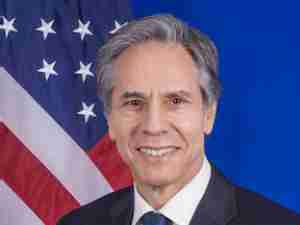For months, drone aficionados have followed coverage on hobbyist websites of rumors and leaks about SZ DJI Technology Co.’s new drone. On Wednesday, DJI even posted on its website a teaser video in anticipation of the release.
But before launching its latest generation aircraft on March 2, DJI, the world’s biggest maker of drones, headed to court to fend off a potential patent-infringement lawsuit from a litigious rival based in Minnesota.
DJI, based in Shenzhen, China, is seeking a declaration from a court in Wilmington, Delaware, that its FPV Aircraft—which stands for “first-person view”—and its Motion Controller don’t infringe QFO Labs Inc.’s patents.

DJI’s new drone can be controlled by the movement of a user’s hand holding the Motion Controller and will be sold through retailers including Best Buy and Amazon.com, according to a complaint filed Wednesday. It has features that are similar to ones produced by its competitors, who have been sued by QFO, DJI said.
The Bloomington, Minnesota-based QFO sent closely held Swiss startup MotionPilot S.A.—which works with DJI in developing the Motion Controller—a “form license agreement covering at least one of the patents,” DJI said.
The “imminent” threat of a lawsuit poses a risk of injury to DJI, its suppliers and customers, the company said. It asked the court to block QFO from suing.
Patent Attorney
Belying its size and that of its competitors, QFO is no stranger to litigation. Its chief executive officer, Brad Pedersen, is a patent attorney and a co-inventor of the patents DJI cited in its complaint. Pedersen on Thursday declined to comment.
Titled “Homeostatic flying hovercraft,” the patents were issued in April 2011 and July 2015. They’re the focus of several other pending lawsuits QFO filed as long ago as 2016.
Parrot S.A., a DJI competitor based in France, asked the same court in August 2016 to rule that its drone products don’t infringe the same patents. That case is pending. The U.S. Patent Trial and Appeal Board later invalidated one claim of the 2011 patent and seven claims of the 2015 patent.
The next April, QFO sued Brookstone Stores for making and selling its Flight Force Expedition Drone, which QFO said infringed the same patents. QFO later dropped the case.
And in November 2017, more than a year after suing Parrot, QFO filed federal lawsuits against Best Buy, Target and Amazon for their sales of Parrot’s products. Those cases, in Minnesota, are pending.
The new drone, DJI said, was “designed, developed, and tested by a team of about one hundred engineers over a period of one and a half years.” DJI has established “multiple assembly lines” with the capacity to make “thousands of units” of the FPV drone and the Motion Controller, it said.
The drone and the motion controller “have features similar” to Parrot’s AR.Drone 2.0 and QFO’s Quad Fighter with Mimix Controller, according to the complaint.
In December, former President Donald Trump’s Department of Commerce said it was blacklisting DJI, chipmaker Semiconductor Manufacturing International Corp. and more than 60 other Chinese companies “to protect U.S. national security.” Trump’s broad onslaught of Chinese companies has left President Joe Biden’s administration the task of deciding whether to keep, remove or further tighten those restrictions.
Katherine Tai, Biden’s nominee for trade chief, considers China both a rival and a partner, according to the text of remarks seen by Bloomberg ahead of her confirmation hearing Thursday before the Senate Finance Committee.
The case is DJI Technology Inc. v. QFO Labs Inc., 21-cv-276, U.S. District Court, District of Delaware (Wilmington).









